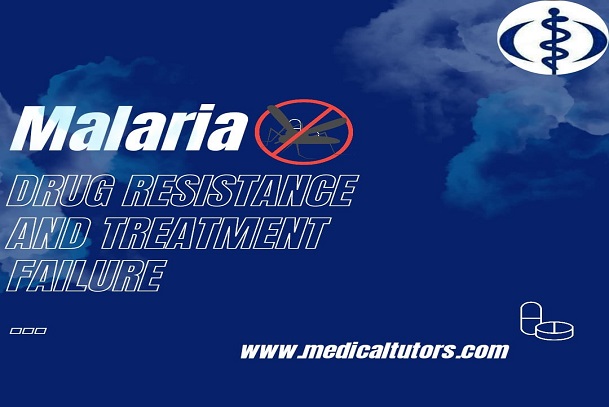Most people ask the question: ‘why do I still feel ill and get reinfected with malaria even after treatment with malaria medication?’ People who ask this question do not get the right answers.
Malaria treatment can fail as a result of the following:
- Malaria drug resistance
- Treatment failure
Malaria Drug Resistance
Drug resistance is the ability of a parasite strain to survive and/or multiply despite the administration and absorption of a drug given in doses equal to or higher than those usually recommended but within the tolerance of the subject.
There are certain drugs that are no longer used to treat malaria. They include chloroquine tablets or injections, the single-use (not combined with Artemisinin) of Pyrimethamine – Sulphadoxine (Fansidar, Amalar), and camoquin.
Treatment Failure
Malaria treatment failure is when a patient who is diagnosed with malaria fails to improve on an administered antimalarial medication.
There is a difference between treatment failure and antimalarial drug resistance. Drug resistance can lead to treatment failure while not all treatment failure is a result of drug resistance.
Many factors can lead to treatment failure of malaria in a patient, and these factors can include:
- Delay in starting antimalarial therapy. Treatment should commence as soon as malaria symptoms are visible and clear to prevent its progression to a more severe infection. Any delay in starting treatment for malarial infection gives the disease a chance to progress from simple to severe complicated malaria. Delay in treatment may be caused by medical practitioners who fail to make the correct diagnosis or try to postpone treatment. Similarly, could also be caused by a patient who seeks medical attention at a much later time or one who does not take the malaria medication as prescribed.
- Substandard/Fake Drugs. When substandard drugs are administered to a patient infected with malaria, treatment can fail. This is a result of the extremely poor quality of the drug which will not able to treat the infection. Even if such drugs are administered correctly, they cannot cure malaria even if the parasites are not resistant.
- Incorrect Use of Antimalarial Drugs. For example, drugs containing Arthemeter/Lumefantrine (Coartem or lonart) should be taken after a meal containing oil or fat. Antimalarial drugs should be taken with a meal like bread and butter where butter provides the fat required for proper absorption of the malaria medication into the body system. Treatment failure could occur if the patient does not take the malaria medication with a fatty meal. Taking it on an empty stomach or after drinking soft drinks such as Coke, Fanta or sprite will result in treatment failure. While on these drugs, avoid taking Vitamin C or fruits as they neutralize the drugs.
- Incorrect Dosages. Ideally, drug dosages are given per kilogram of body weight. Incorrect doses especially under-dosing of patients lead to the persistence of malaria infection. This is so because the dose in the body is not sufficient to clear the infection present and hence the disease persists and progresses as the parasites develop resistance to the drug used.
- Ceasing the Use of Antimalarial Medication. Once a patient stops taking the antimalarial medication for the recommended duration, it can lead to treatment failure. For example, taking Artemether/Lumefantrine for only 2 days instead of the recommended 3-day duration.
- Failure to Switch Patients from Parenteral to Early Oral Therapy in the Treatment of Severe Malaria. It is important to switch your patient from parenteral to oral medication as soon as they stabilize and can take it orally. Failure to do this can lead to treatment failure since parenteral treatment is not a combination therapy.
- Multiple diagnoses on a patient. When multiple diagnoses are carried out on a patient, it may cause the doctor to focus attention on one particular disease than the other. If the doctor fails to diagnose malaria and treat only the other disease patient’s health will deteriorate until malaria is treated.
How to Prevent Malaria Treatment Failure and Drug Resistance
To prevent drug resistance, avoid the use of antimalarial medications that are old and no longer recommended.
To avoid treatment failures, do these:
- Ensure a proper diagnosis is carried out and commence malaria treatment immediately
- Administer the correct medication as directed by the Manufacturer
- Take the correct dosage over the recommended period of time
- Monitor the progress of malaria treatment for each patient
- Stabilize the patient in severe malaria cases
- Review all treatments especially if the patient is deteriorating and not responding to the treatment
The following are some of the ways to manage treatment failures in malaria treatment:
- Using the appropriate antimalarial drugs for the treatment of Malaria: for example, Artemether/Lumefantrine should be taken after a food containing oil or fats; vitamin C or fruits should be avoided during the 3 days of treatment.
- Administer the medication in the recommended dosage and duration. Also, schedule an appointment to ensure the patient completes the dose. Artemether/Lumefantrine should be used for 3 days and not 2 days.
- If there is treatment failure despite this, use another combination, for example, if there is treatment failure with Artemether/Lumefantrine, use P-alaxin (Dihydroxy-artemisinin plus piperaquine).
- Assess, investigate and exclude all possible differential diagnoses in a patient with malaria while treating all concurrent diseases appropriately.
What to Avoid in Treatment Failure?
There is a tendency for most Nigerians to start treating typhoid once malaria treatment fails. Unless the patient has clinical symptoms of typhoid fever, and the tests are positive, treatments should not be carried out.
 Wash your hands regularly and wear a face mask.
Learn more
Wash your hands regularly and wear a face mask.
Learn more
